With this WhatsApp app, you can chat in any language with a Large language models (LLM) on Amazon Bedrock. Send voice notes and receive transcriptions. By making a minor change in the code, you can also send the transcription to the model.
Your data will be securely stored in your AWS account and will not be shared or used for model training. It is not recommended to share private information because the security of data with WhatsApp is not guaranteed.
AWS Level: Intermediate – 200
Prerequisites:
Cost to complete:
- Amazon Bedrock Pricing
- Amazon Lambda Pricing
- Amazon Transcribe Pricing
- Amazon DynamoDB Pricing
- Amazon APIGateway Pricing
- Whatsapp pricing
How The App Works
1- Message input:
- WhatsApp receives the message: voice/text.
- Amazon API Gateway receives the message from the WhatsApp webhook (previously authenticated).
- Then, an AWS Lambda Functions named whatsapp_in processes the message and sends it to an Amazon DynamoDB table named whatsapp-metadata to store it.
- The DynamoDB table whtsapp-metadata has a DynamoDB streaming configured, which triggers the process_stream Lambda Function.
2 – Message processing:
Text Message:
![图片[1]-Building a WhatsApp generative AI assistant with Amazon Bedrock and Python - 拾光赋-拾光赋](https://media2.dev.to/dynamic/image/width=800%2Cheight=%2Cfit=scale-down%2Cgravity=auto%2Cformat=auto/https%3A%2F%2Fassets.community.aws%2Fa%2F2cjoHkKpeQpmZH82iJeiwOEIQj5%2F2_1_step-jpg.webp)
process_stream Lambda Function sends the text of the message to the lambda function named langchain_agent_text (in the next step we will explore it).
Voice Message:
- The audio_job_transcriptor Lambda Function is triggered. This Lambda Function downloads the WhatsApp audio from the link in the message in an Amazon S3 bucket, using Whatsapp Token authentication, then converts the audio to text using the Amazon Transcribe start_transcription_job API, which leaves the transcript file in an Output Amazon S3 bucket.
Function that invokes audio_job_transcriptor looks like this:
def start_job_transciptor (jobName,s3Path_in,OutputKey,codec):
response = transcribe_client.start_transcription_job(
TranscriptionJobName=jobName,
IdentifyLanguage=True,
MediaFormat=codec,
Media={
'MediaFileUri': s3Path_in
},
OutputBucketName = BucketName,
OutputKey=OutputKey
)
Enter fullscreen mode Exit fullscreen mode
Notice that the IdentifyLanguage parameter is configured to True. Amazon Transcribe can determine the primary language in the audio.
- The transcriber_done Lambda Function is triggered with an Amazon S3 Event Notification put item once the Transcribe Job is complete. It extracts the transcript from the Output S3 bucket and sends it to whatsapp_out Lambda Function to respond to WhatsApp.
You have the option to uncomment the code in the transcriber_done Lambda Function and send the voice note transcription to langchain_agent_text Lambda Function.
try:
response_3 = lambda_client.invoke(
FunctionName = LAMBDA_AGENT_TEXT,
InvocationType = 'Event' ,#'RequestResponse', Payload = json.dumps({
'whats_message': text,
'whats_token': whats_token,
'phone': phone,
'phone_id': phone_id,
'messages_id': messages_id
})
)
print(f'\nRespuesta:{response_3}')
return response_3
except ClientError as e:
err = e.response
error = err
print(err.get("Error", {}).get("Code"))
return f"Un error invocando {LAMBDA_AGENT_TEXT} Enter fullscreen mode Exit fullscreen mode
3- LLM Processing:
The agent receives the text and performs the following:
- Queries the Amazon DynamoDB table called
user_metadatato see if thesessionhas expired. If it is active, it recovers theSessionID, necessary for the next step, if it expires it creates a new session timer. - Queries the Amazon DynamoDB table called session Table to see if there is any previous conversation history.
- Consult the LLM through Amazon Bedrock using the following prompt:
The following is a friendly conversation between a human and an AI.
The AI is talkative and provides lots of specific details from its context.
If the AI does not know the answer to a question, it truthfully says it does not know.
Always reply in the original user language.
Current conversation:
{history}
Human:{input}
Assistant:
Enter fullscreen mode Exit fullscreen mode
- Send the response to WhatsApp through
whatsapp_outthe Lambda Function.
The phrase “Always reply in the original user language” ensures that it always responds in the original language and the multilingual capacity is provided by Anthropic Claude, which is the model used in this application.
Let’s build!
Step 0: Activate WhatsApp account Facebook Developers
1- Get Started with the New WhatsApp Business Platform
2- How To Generate a Permanent Access Token — WhatsApp API
3- Get started with the Messenger API for Instagram
Step 1: APP Set Up
Clone the repo
git clone https://github.com/build-on-aws/building-gen-ai-whatsapp-assistant-with-amazon-bedrock-and-python
Enter fullscreen mode Exit fullscreen mode
Go to:
cd private-assistant
Enter fullscreen mode Exit fullscreen mode
Step 2: Deploy architecture with CDK.
In private_assistant_stack.py edit this line with the whatsapp Facebook Developer app number:
DISPLAY_PHONE_NUMBER = 'YOU-NUMBER'
This agent manages conversation memory, and you must set the session time here in this line:
if diferencia > 240: #session time in seg
Tip: Kenton Blacutt, an AWS Associate Cloud App Developer, collaborated with Langchain, creating the Amazon Dynamodb based memory class that allows us to store the history of a langchain agent in an Amazon DynamoDB.
-
Configure the AWS Command Line Interface
-
Deploy architecture with CDK Follow steps:
Create The Virtual Environment: by following the steps in the README
python3 -m venv .venv
Enter fullscreen mode Exit fullscreen mode
source .venv/bin/activate
Enter fullscreen mode Exit fullscreen mode
for windows:
.venv\Scripts\activate.bat
Enter fullscreen mode Exit fullscreen mode
Install The Requirements:
pip install -r requirements.txt
Enter fullscreen mode Exit fullscreen mode
Synthesize The Cloudformation Template With The Following Command:
cdk synth
Enter fullscreen mode Exit fullscreen mode
The Deployment:
cdk deploy
Enter fullscreen mode Exit fullscreen mode
Step 3: WhatsApp Configuration
Edit WhatsApp configuration values in Facebook Developer in AWS Secrets Manager console.
The verification token is any value, but it must be the same in step 3 and 4.
Step 4: Webhook Configuration
- Go to Amazon API Gateway Console
- Click on
myapi. -
Go to Stages -> prod -> /cloudapi -> GET, and copy Invoke URL.
-
Configure Webhook in the Facebook developer application.
- Set Invoke URL.
- Set verification token.
Enjoy the app!:
Chat and ask follow-up questions. Test your multi-language skills.
Send and transcribe voice notes. Test the app’s capabilities for transcribing multiple languages.
Keep testing the app, play with the prompt langchain_agent_text Amazon Lambda function and adjust it to your need.
Conclusion:
In this tutorial, you deployed a serverless WhatsApp application that allows users to interact with an LLM through Amazon Bedrock. This architecture uses API Gateway as a connection between WhatsApp and the application. Amazon Lambda functions process code to handle conversations. Amazon DynamoDB tables manage and store message information, session details, and conversation history.
You now have the essential code to improve the application. One option moving forward is to incorporate Retrieval-Augmented Generation (RAG) to generate more sophisticated responses depending on the context.
To handle customer service scenarios, the application could connect to Amazon Connect and transfer calls to an agent if the LLM cannot resolve an issue.
With further development, this serverless architecture demonstrates how conversational AI can power engaging and useful chat experiences on popular messaging platforms.
Did you like this blog? Do you have comments? tell me every thinghere
Some links for you to continue learning and building:
- Get started with Amazon Connect
- Elevating Customer Support With a Whatsapp Assistant.
- RAG with history memory agents using Amazon Bedrock, Amazon Kendra, Amazon Lambda Function, and Amazon DynamoDB
- How To Choose Your LLM
- Working With Your Live Data Using LangChain
¡Gracias!
Dev.to Linkedin GitHub Twitter Instagram Youtube
Linktr
原文链接:Building a WhatsApp generative AI assistant with Amazon Bedrock and Python
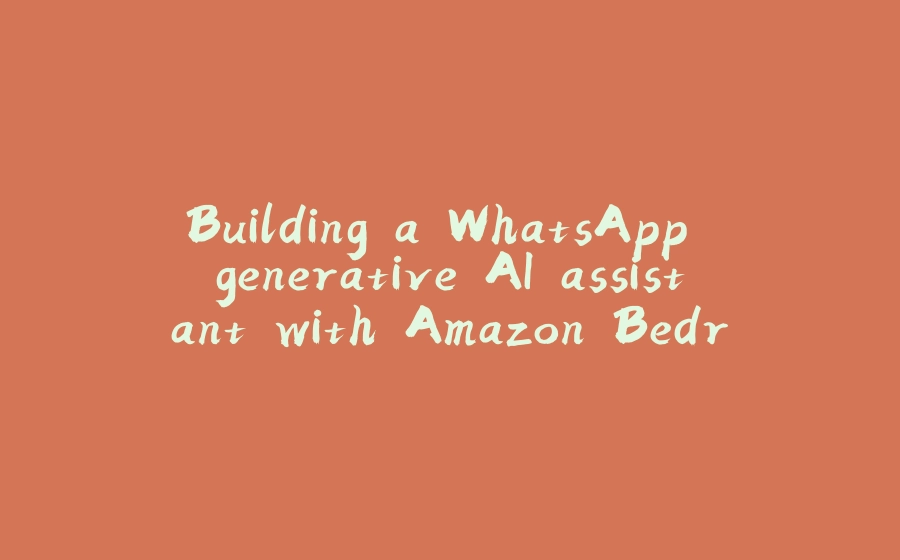
















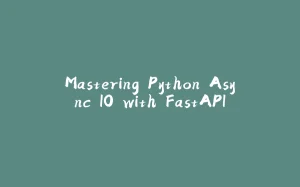








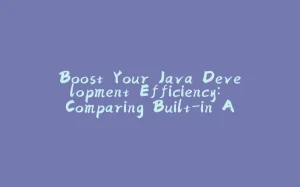
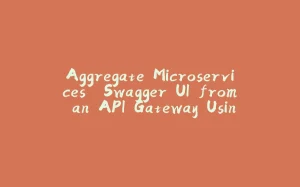
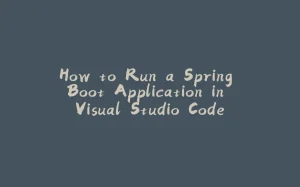
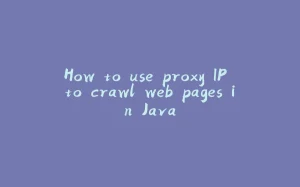
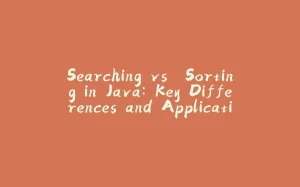
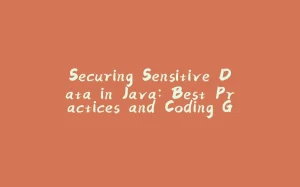





暂无评论内容